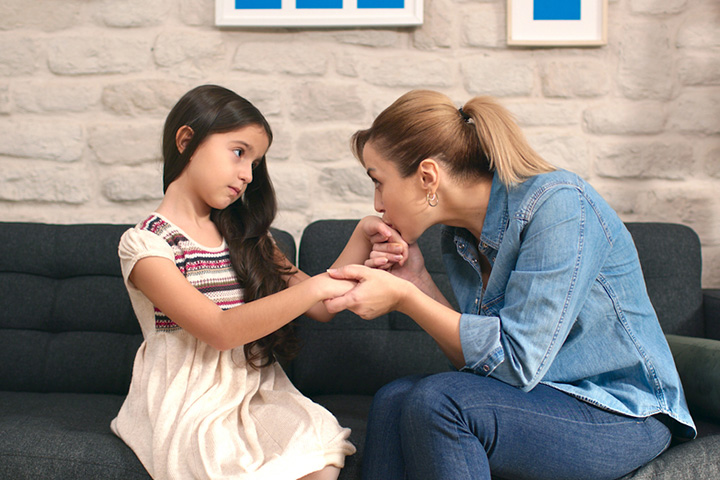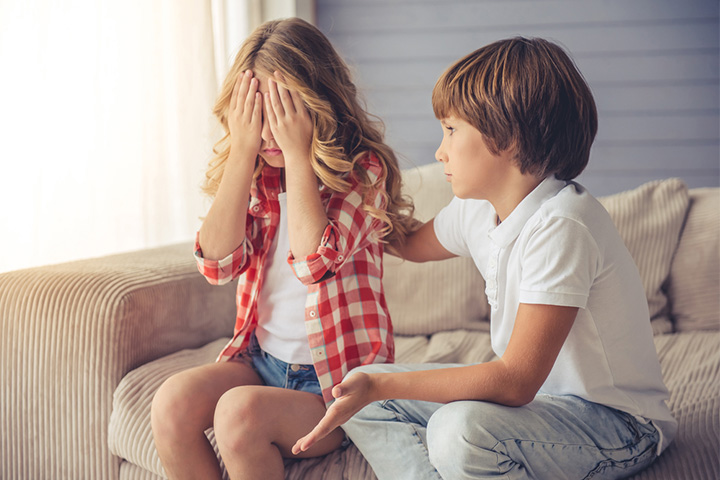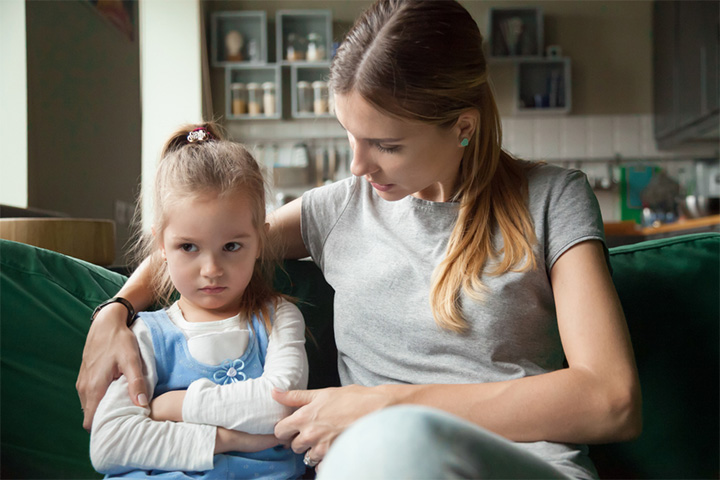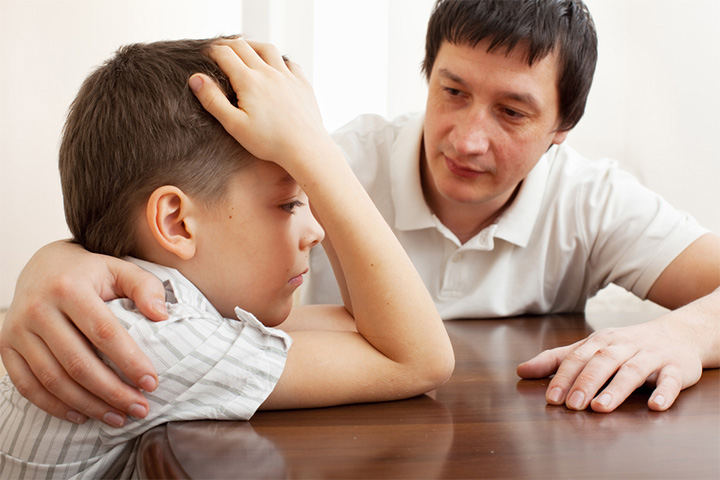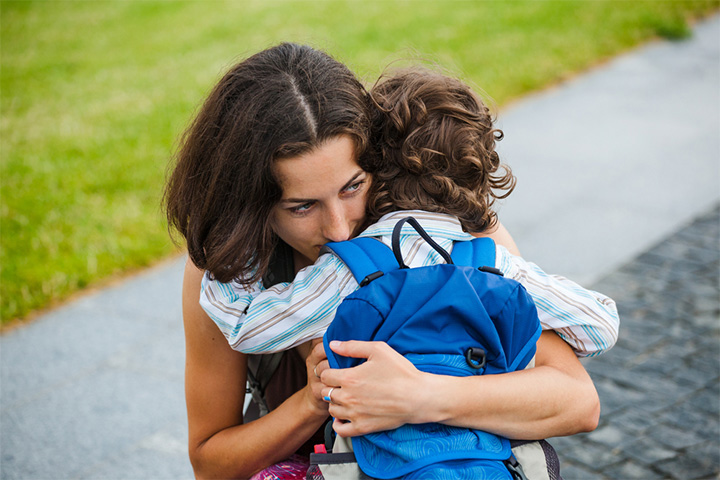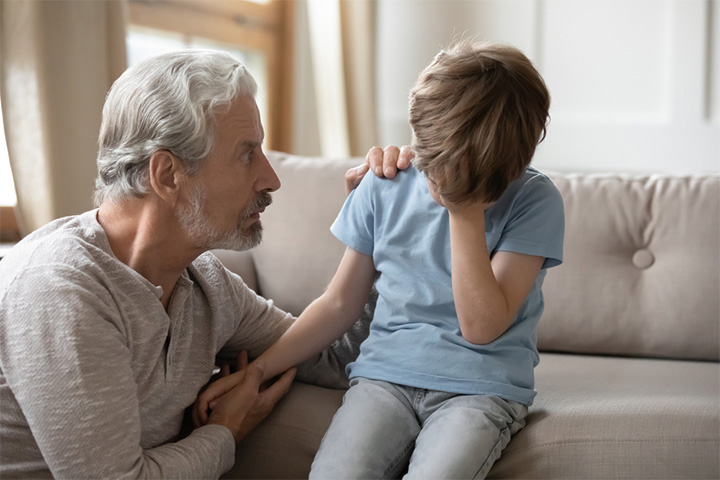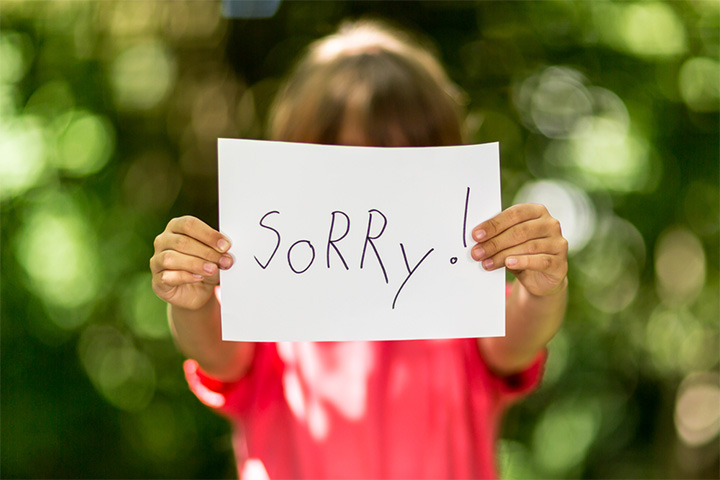
Image: Shutterstock
Words like please, thank you, and sorry are one of the first lessons in manners and politeness we are taught as kids. It has helped us appear more civilized and chivalrous, and we would want to impart the same to our kids. But even so, teaching them to say, “I am sorry” can lead to behavioral issues if your child merely sees this as a word and doesn’t relate to the meaning of it. An essential part of saying sorry is being sorry. Unfortunately, the word – sorry, has become so ordinary that we often accept it without further thought. But an apology should be heart felt, and your kids should know that. Teaching your children how to apologize will help them develop empathy and compassion. Here are a few ways how you can teach your kids the meaning of the word at an early age. Read on!
1. Just Saying You’re Sorry Will Not Improve The Situation
Image: Shutterstock
Forcing your children to apologize will likely backfire and leave them feeling much worse about themselves than before. A heartfelt apology is unlikely to come from someone who cannot feel guilt. If they don’t realize why they should apologize, it won’t help. In reality, all it does is provide an escape hatch from having to take responsibility for their actions. Instead, you should allow your kids to recognize their mistakes, the harm they caused to others, and the steps they need to take to improve their conduct. So instead of pushing them to say sorry and shake hands, ask them how they would like to apologize for the situation. For example, if they broke a kid’s toy, they could give them theirs instead. This way, they will learn to behave and not repeat their misconduct.
2. If Your Kid Has Caused Distress, You Should Frame The Issue In A Way That Encourages Them To Make Amends.
Image: Shutterstock
If your child knows they can make amends for their mistake, they will be more likely to apologize and take responsibility for their actions than if you are simply shaming them. It is not necessary that an apology has to be made verbally. A hug or generous deed might also qualify as an apology. Children may learn empathy and how to appropriately apologize with the guidance of their parents. The best thing you can do for your child is to be as honest as possible about what transpired and how their actions impacted another child if you were there to witness the tragedy.
3. Apology Is More Than Just The Word ‘Sorry’
Image: Shutterstock
Sometimes you can take the help of the situation to teach your kids about apologizing. First, you may explain what you see, such as a kid with a bruise and the stress caused by the injury. Next, ask the harmed child whether they’re all right and if there’s anything you can do to aid them. After that, it’s up to your child to fix problems. For example, when someone makes a mess, you might tell them to clean it up or get a bandage. Lastly, ensure your child won’t repeat the same behavior by having them swear they won’t. An authentic expression of regret must include certain elements.
1. I Apologize For…
Image: Shutterstock
Your child should apologize to the person they injured/caused harm and show them they are sorry for what they did and how their actions affected them.
2. Justify Your Objection With “It’s Improper Because…”
Image: Shutterstock
Your kid can learn to empathize with others by looking at the world through their eyes. Having an awareness of the emotions of others might help your child alter their behavior and avoid negative consequences.
3. I Promise That Someday I Will…
Image: Shutterstock
The individual who has been injured or is in the victim’s end needs assurances that this will not happen again. They will feel better after hearing your kid apologize and promising to be better next time.
4. I Beg Your Pardon
Image: Shutterstock
Your child still must try to beg for forgiveness, even if there is no assurance that they will receive it. In doing so, they will demonstrate a desire to mend fences with their offended friend and acknowledge that they want the friend’s approval before they can resume their connection with them.
Kids can deviate from being the sweetest child to a little monster pretty fast. However, excusing your child by saying, ‘they are just a kid,’ is the worst possible thing you can do as a parent. Even with your best efforts, they are capable of embarrassing you and creating a scene with their actions. However, it is up to you to guide them on the right path. Kids learn from how you react with others, so if you behave well, they will try to copy you to the best of their abilities. So, what do you think about teaching your kids to apologize the right way? Let us know in the comments section!

